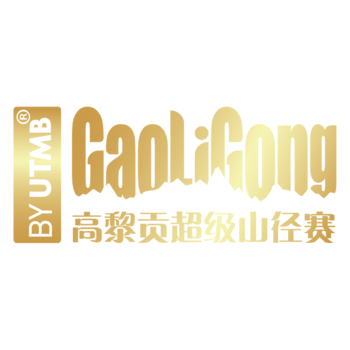

Gaoligong by UTMB® Travel Package
Package
A : Tengchong
Package
B : Shangrila
Package
C : Tengchong and Shangrila
Package A :Tengchong
Duration:
8 days and 7 nights
Cost:
5100 RMB/per person(735CHF/ per person)
Schedule:
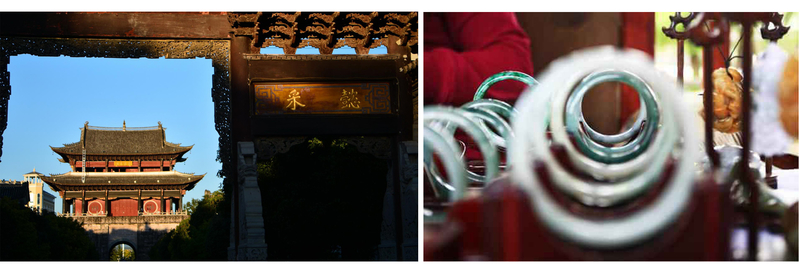
March
6
Arrival in Tengchong
Visit Tengchong Jade Market
Welcome banquet
Five – star hotel accommodation
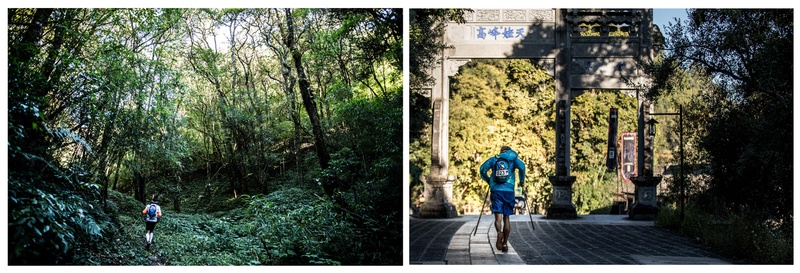
March
7
Trip to Gaoligong Mountains: (driving time 1 hour by
bus, approximately 40km from the city). Race course recce between CP6 and CP7
with total distance 9km - hiking in the Gaoligong mountains on ancient paths in
the mountain jungle, through rhododendron forest.
Return to Tengchong
“Magic Tengchong” theatre performance in the evening
in the city
Five – star hotel accommodation
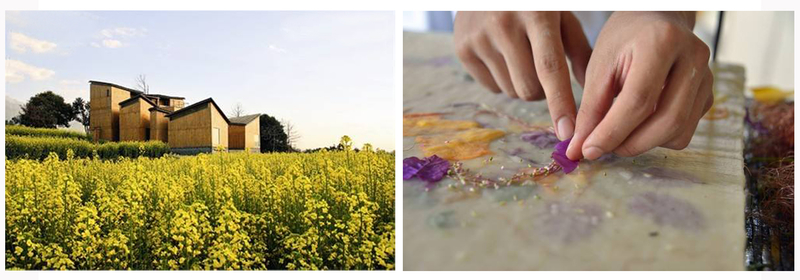
March
8
Jietou Village and
Mountain Flower Meadow (driving time 1 hour by bus, approximately 40km from the
city) – photo opportunities, and a chance to do the last run before the race.
Papermaking experience – learn
how to make paper using thousand- year old methods with the masters of the
craft (Jietou Village)
Return to Tengchong in the
afternoon
Race package and bib collection
Pre-race briefing
Five – star hotel accommodation

March
9
Travel to race start (10 min by bus)
Race starts
Activities for race participants’ family and friends
Five – star hotel accommodation
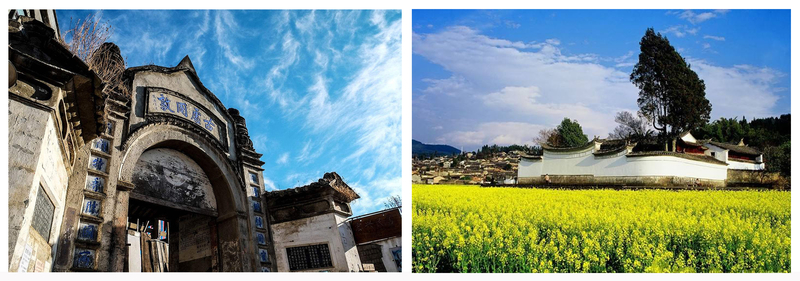
March
10
Family members travel to race finish in Heshun Old
Town (10 min by bus)
Visiting Heshun and participating in activities
provided by organizers
Five – star hotel accommodation
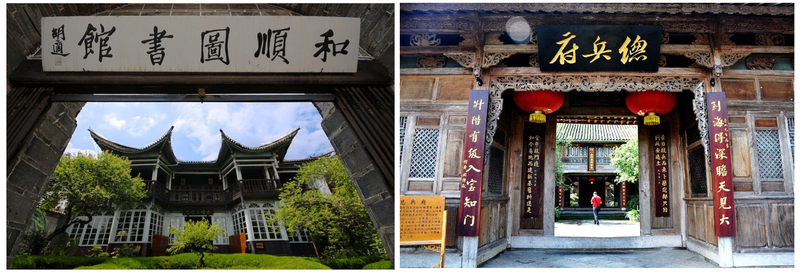
March
11
Family members travel to race
finish in Heshun Old Town (10 min by bus)
Visiting Heshun and
participating in activities provided by organizers
Awards ceremony
Five – star hotel accommodation
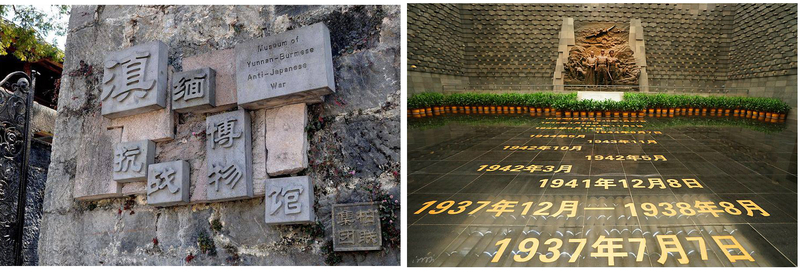
March
12
Visit Tengchong Soldiers’ Cemetery and World War II
Museum
Hot springs
Five – star hotel accommodation
March 13
Departure from Tengchong
Services
included:
7 nights in five-star hotel (shared standard twin or
double room, with breakfast)
Lunch and dinner (13 meals in total)
Transportation (bus) for eight days
Chinese and English guides
Entry tickets for 4 scenic spots and Magic Tengchong
show
Personal insurance
Services
not included:
Race registration fee
Visa fee
Transportation to and from
Tengchong
Single supplement or room upgrades
Personal expenses
Package B :Shangrila
Duration:
8 days and 7 nights
Cost:
11100 RMB per person(1600 CHF/ per person)
Schedule:
March
13
Fly from Tengchong to Lijiang via Kunming (flight
time with stopover approximately 3 hours)
Spend the night in five –star hotel in Lijiang
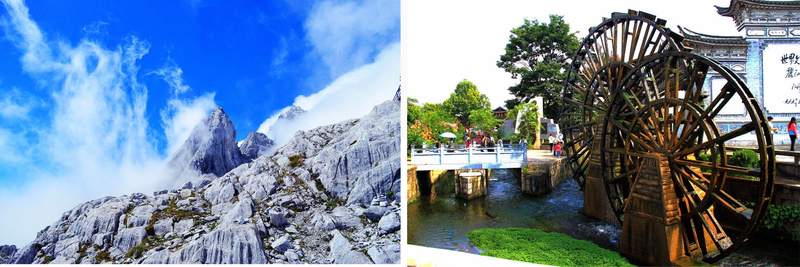
March
14
Breakfast
Jade Dragon Snow Mountain (driving time 30min) –
take cable car to the upper glaciers, then visit the Ganhaizi Grassland, Shuhe
and Baisha Villages (recommend) and Baishuihe and Yushuizhai scenic sites
Watch Impression
Lijiang performance
Spend the night in Lijiang

March
15
Breakfast
Tiger Leaping Gorge (2 hours by bus)
Lunch in Tiger Leaping Gorge
Drive to Shangrila (3 hours from Tiger Leaping
Gorge)
Spend the night in Shangrila
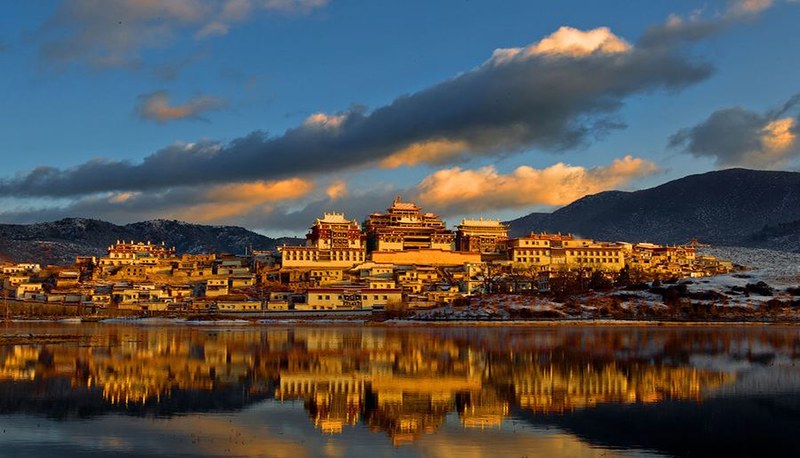
March
16
Breakfast
Sightseeing in Shangrila – Dukezong Old Town,
Songzanlin Monastery
recommend Napa Lake and surrounding villages
Spend the night in Shangrila

March
17
Breakfast
Benzilan Village (2 hours drive)
Deqin Town – on the way visit the spectacular First
Bend of the Yangtze, and Baima Pass (4358m)- total driving time 4.5 hours.
Spend the night in five –star hotel in Deqin Town

March
18
Watch sunrise over the mountains before breakfast
Breakfast
Visit Feilai Temple
Drive to Mingyong Glacier (1 hour driving time)
Spend the night in five –star hotel nearby

March
19
Breakfast
Drive to Pudacuo National Park and Shangrila
Lunch in Shangrila
Visit Napa Lake
Spedn the night in Shangrila
March
20
Fly from Shangrila to
Kunming (50 minutes)
Services
included:
Tengchong – Kunming – Lijiang flights
Shangrila – Kunming flight
7 nights in five-star hotel (twin rooms)
Lunch and dinner (12 meals in total)
Transportation (bus) for eight days
One English – speaking guide
Entry tickets for 11 scenic spots
Personal insurance
Services
not included:
Gaoligong Ultra registration fee
Visa fee
Transportation to Tengchong from Kunming, including
flights and bus tickets
Additional hotel rooms or room upgrades
Personal expenses incurred during the stay in the
hotel (such as minibar, room service, etc) and personal purchases
Package C :Tengchong
and Shangrila
Duration:
15 days and 14 nights
Cost:
16200 RMB/per person(CHF 2335/ per person)
Schedule:
Combine of Package A & B
Services
included/Services not included:
Combine of Package A & B
About
Tengchong:
Tengchong
– China’s Best Kept Secret
Tengchong
Municipality is a natural gem yet to be discovered by travellers. It is located
in the subtropics, close to the border with Myanmar, next to Gaoligong Mountain
chain - a great reservoir of biodiversity, untouched nature and traditional
cultures that few visitors to China have ever had a chance to experience. It is
a land of volcanoes – their cones arise just outside the city and the
geothermal activity has produced hundreds of hot springs.
History here goes back
thousands of years – in antiquity Tengchong was a vital hub on the Tea and
Horse Trail, also known as the Southern Silk Road. The Tea and Horse Trail was
a trading route connecting Southern China, Myanmar, India and Persia, and
started operating almost two and a half millennia ago. Caravans piled with
silver, tea, jade, as well as transporting the prized Tibetan horses, continued
on their journeys until the 1950s. To this day, Tengchong abounds with
historical sites and artifacts, which are only very recently started to gain first
visitors.
The first mention of
Tengchong in Chinese historical records calls it a place which: “Is far from
the provincial capital Kunming, and the local people here ride mighty
elephants.” There are no elephants here anymore, but is indeed a strong connection
with South East Asia in Tengchong – the local food is similar to Thai cuisine
and the well-preserved culture of the local mountain ethnicities makes
Tengchong feel quite different from China proper.
During World War II,
fierce battled raged here between the Japanese and the allied Chinese and
American forces. Since the war, the ideological differences left the heroes of
these campaign forgotten, but recently this heritage has been rediscovered and
the US and Chinese soldiers are honoured yet again - the legendary Flying
Tigers, American volunteer pilots stationed right here during the war have
regained their status of heroes and friends. The tribute to this military past
can be observed in the fascinating, modern World War II museum in the city.
Tengchong for Chines is
synonymous with jade – a semi-precious gem admired and prized by Chinese for
its warm delicate colour. Tengchong lives and breathes jade, it is part of the
local culture and amazing pieces of jade craftsmanship and art can be admired
and bought at the jade market in Tengchong.
The local people are
also very special – Tengchong a hotpot of different ethnicities, and the
isolation, broken only recently by building roads and airports, has left their
customs and way of life as they were centuries ago. Long considered wild,
unruly borderlands, far from the center of civilization, Tengchong is now ready
to showcase itself to the world, and it has plenty to offer to those
adventurous to wander off the beaten path.
Here in Tengchong you
can enjoy hiking volcanos, exploring untouched jungle home to clouded leopards,
red pandas and gibbons, hike across the Gaoligong Mountains on the cobbled
paths older than the Roman Empire, admire traditional architecture in Hexun Old
Town, or relax in one of the hundreds of local hot springs. Most importantly,
here you can truly explore, and do so in complete safety, and assured of a
welcome that exceeds all your expectations.
About Shangrila:
Northern Yunnan – Tibetan Borderlands
This trip will take
travelers through what only fifty years ago was remote wilderness, where only
the bravest of travelers and true explorers dared to venture. This region is
one of the most diverse and fascinating pasts of China, and must not be missed
if you are visiting the country.
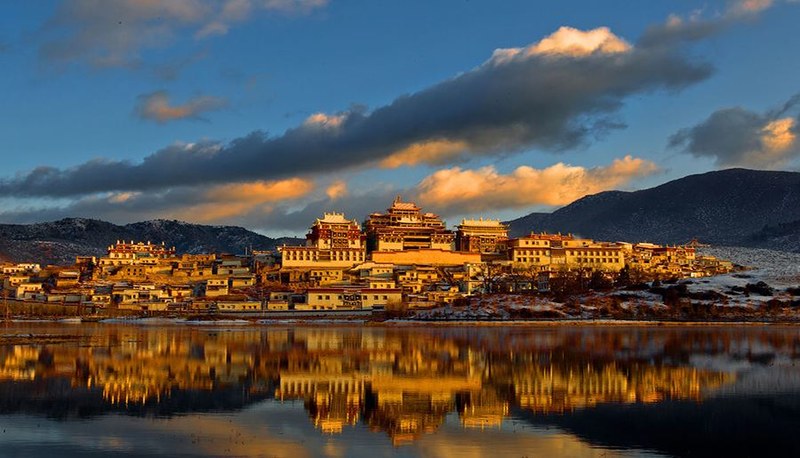
Shangrila
The North of Yunnan
Province, where Shangrila is located, is ethnically mainly Tibetan and is part
of Kham, the eastern-most part of the Tibetan world. Here two different
cultures meet and have coexisted for centuries – the Tibetan and the Han
Chinese, but this region is also home to other mountain ethnicities, each with
its own customs, language and proud history.
The landscape here is
stunning - mountain valleys covered with primary forests, with many lakes, fast
flowing mountain rivers, and soaring, ice capped mountains above. The local
Tibetans are called Khampas – warriors, renowned for their toughness, good
humour and powerful build. The town of
Shangrila itself is more than 1000 years old, its original name – Gyalthak
(also rendered as Dukezong) was changed to Shangrila fifteen years ago, and it
fits it extremely well. There is a special feel about Shangrila, it stands at
3,300m above sea level, on a wide plain where countless yaks graze, fenced off
by high mountains. The Tibetan villages, which surround the town, remain
authentic, the local women wear traditional Tibetan attire, and yaks have a
habit of wandering into town, oblivious to vehicles and people. One of the most magnificent Buddhist temples
– Sonzanlin Monastery, now restored to its former glory stands just outside the
town.
The attractions around
Shangrila are many - Benzilan, a green
oasis where wine is made, the picturesque Pudacuo National Park, the seasonal
Napa Lake - home to great diversity of birds, and, further North, the giant
Baima Snow Mountain, the views of the first bend of the great Yangtze River and
the Tibetan town of Deqin with its frontier feel – Tibetan herders come down
from the surrounding mountains wearing their traditional costumes. The way of
life here is changing fast, but this part of Yunnan still retains its original
frontier feel, and now welcoming visitors from abroad - the region was opened
to foreign travelers just 15 years ago.
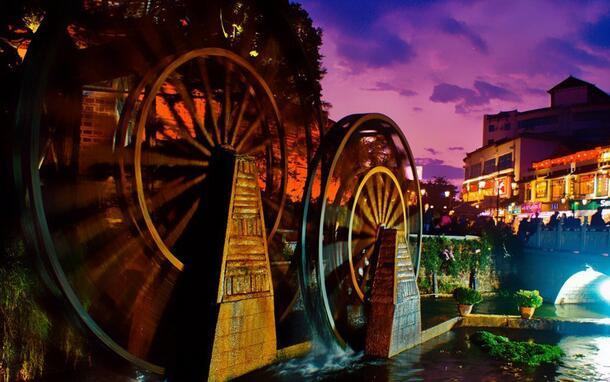
Lijiang
Almost a thousand years
old, this now modern city was the key hub on the Tea and Horse Trail, also
known as the Southern Silk Road, a trading route connecting Yunnan, Tibet,
India and Persia. The local ethnic group here are the Naxi (pronounced nah-see), mountain people with a
remarkable culture – a shamanistic (known as dongba) religion where the future was divined using the sounds and
behavior of wild ravens, and a unique script which, once forgotten, is now
being revived.
The Old Town of
Lijiang, declared UNESCO World Heritage site in 1986, is now one of the most
popular tourist destinations in the whole of China. The main attractions of
Lijiang are Jade Dragon Snow Mountain – a magnificent 5596m high peak capped by
vast glaciers, and the ancient trading villages of Baisha and Shuhe just
outside the city.
Between Lijiang and
Shangrila lies one of the most dramatic sites in China – Tiger Leaping Gorge.
This narrow, nine-kilometer-long canyon, where the mighty Yangtze rages and
thunders through a stone channel as narrow as a dozen meters wide, below a
sheer drop of hundreds of meters of rock face, it is equally terrifying and
magnificent. The hike through the canyon has been ranked as one of the most
spectacular world-wide.
This trip will take you
from the subtropical jungle and South East Asian feel of Tengchong to the
rugged, high-altitude landscapes of the Tibetan borderlands, a contrast that
few other locations in the world can offer.
NOTE
Altitude
This trip involves
visits to locations at considerable altitude – Shangrila is at 3,300m above sea
level and Jade Dragon Snow mountain may take you as high as over 4000m metres.
For this reason, be aware of risks involved with altitude – avoid overexertion
on the first few days, make sure you are properly hydrated (dehydration is very
rapid at altitude due to increased rate of breathing), also make sure you bring
sun screen and lip balm and a hat to protect against the sun at altitude.
Weather
High altitude and
proximity to the Himalaya makes weather rather unpredictable in northern
Yunnan, which may affect flights and other travel arrangements.
Local customs
This trip includes
visits to active places of worship, such as Buddhist temples. Please remember
to respect the local customs and religious feelings, behaving courteously and
mindfully at all times.
Accommodation
Couples and friends
travelling together are required to let us know in advance so that we can make
appropriate arrangements regarding hotel rooms.
Those travelling alone
will share a room with a fellow member of the group. Female travelers
travelling alone will be housed together wherever possible, but if you have
requirements to have a single room, please let us know in advance, but please
not additional cost maybe involved.